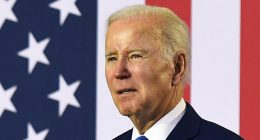
WASHINGTON—The World Trade Organization on Wednesday authorized China to impose retaliatory tariffs worth $645 million on imports from the U.S. in a decade-old dispute over Chinese subsidies to promote exports of products such as solar panels and steel pipes.
The ruling was made by a WTO arbitration panel in a case dating back to 2012. China had complained about the tariffs the U.S. imposed between 2008 and 2012 on solar panels and other products that the U.S. said were produced with unfair subsidies to state-owned companies.
The WTO’s high-level dispute-settlement court delivered a mixed ruling on the fight in 2018, saying the U.S.’s tariffs were in violation of WTO rules.
Since then, the two countries squabbled over the compliance with the ruling and the amount of the compensation China should be allowed to collect in retaliatory tariffs, handing the case to a WTO arbitration panel.
Adam Hodge, a spokesman for the U.S. Trade Representative’s Office, blasted the decision, saying the WTO protects “China’s nonmarket economic practices and undermines fair, market-oriented competition.”
The decision “reinforces the need to reform” the WTO’s rules and dispute settlement functions, he added.
A spokesman for China’s Commerce Ministry said it reserved the right to take further actions, without elaborating, and would watch closely for U.S. follow-up actions.
“The WTO ruling once again proved that the U.S. has long violated WTO rules, abused trade remedies and refused to fulfill the international obligations clearly stipulated in WTO rulings and rules,” Commerce Ministry spokesman Gao Feng said at a weekly briefing on Thursday.
Chad Bown, a senior fellow at Peterson Institute for International Economics, said that if China chooses to implement the retaliatory tariffs authorized by the WTO, it would risk “re-initiating a tariff escalation of the U.S.-China trade war, that is now in a fragile state of truce.”
The U.S. and China signed a trade pact in 2020 that called for China to increase its purchases of U.S. goods. China has failed to meet those purchase commitments, however, and tariffs remain on Chinese apparel, electronics, furniture and other items.
The latest case is among several the two nations have fought at the WTO over the role played by China’s state-owned enterprises in promoting exports of manufactured goods using subsidies. The U.S. and other free-market nations have complained that Beijing gives unfair advantages to Chinese manufacturers over companies from their nations.
Complaining that the WTO gave favorable treatment to China in disputes over such issues, the U.S. has in recent years blocked the appointments of judges to the Appellate Body, the group’s high-level trade settlement court, effectively shutting it down in December 2019.
The decision comes as the Biden administration begins conversations with some WTO member nations to overhaul the WTO, which has struggled to forge new trade deals and settle disputes among its members amid the confrontation between the U.S. and China. The latest decision favoring China is “one more motivation for why the U.S., China, EU and other major WTO members need to figure out new rules [on] countervailing duties,” Mr. Bown said.
Write to Yuka Hayashi at [email protected]
Copyright ©2022 Dow Jones & Company, Inc. All Rights Reserved. 87990cbe856818d5eddac44c7b1cdeb8








